Dear Families,
This week we recognise National Reconciliation Week (NRW,) a time for all Australians to learn about our shared histories, cultures, and achievements, and to explore how each of us can contribute to achieving reconciliation in Australia. The theme for National Reconciliation Week 2023, Be a Voice for Generations, encourages all Australians to be a voice for reconciliation in tangible ways in our everyday lives – where we live, work and socialise.
For the work of generations past, and the benefit of generations future, let’s choose to create a more just, equitable and reconciled country for all.
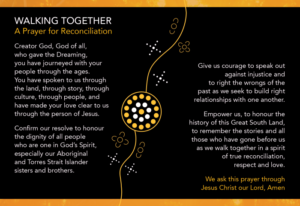
National Sorry Day 2023
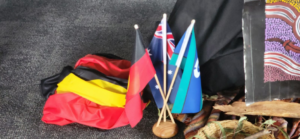
On Friday 26th May, we gathered as a school community to recognise National Sorry Day. On this day, we remember and acknowledge the mistreatment of Aboriginal and Torres Strait Islander people who were forcibly removed from their families and communities, which we now know as ‘The Stolen Generations’.
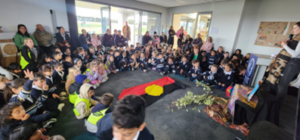
Sorry Day is important because the children were separated from their families, sometimes never seeing them again. Their families were special to them and they were forcibly removed from them.
Savannah – Grade 3
Sorry Day is important because it was really sad that the Aboriginal children were taken away from their families.
Jasper – Grade 3
National Reconciliation Week 2023
Mary Queen of Heaven has been recognising National Reconciliation week by participating in a number of learning experiences that have helped to understand more about Aboriginal and Torres Strait Islander cultures, the oldest continuing culture in human history.
Dreamtime Story Artwork
I listened to Tiddilick the Frog dreamtime story. When I created my artwork, I used sticks for the trees and blue glitter for the pond. Tiddilick the Frog drank all the water. The other animals did not have any left so the animals made him laugh which made him spat out the water. The water made the rivers and lakes.
Joshua – Grade 1
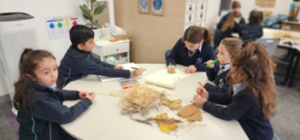
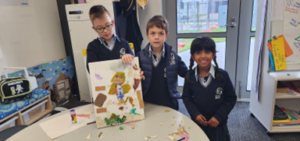
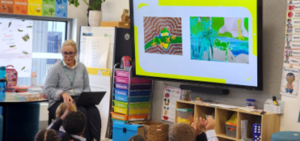
Bunjil Feather Art
As part of our learning, we have been reading the story of Bunjil The Eagle. We created feathers for Bunjil using Aboriginal symbols and colours.
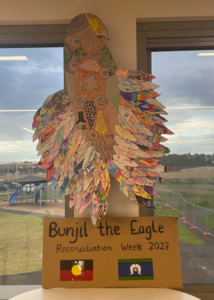
In the coming week our year 4 students will celebrate the Sacrament of Eucharist. We ask that you all keep them in your prayers as they continue on their journey through the Initiation into the Catholic Church. We ask God to bless our candidates and nourish them with his body and blood, bringing them ever closer to him. For any families who would like to join in celebrating the sacrament, please join us at Good Shepherd Catholic Church Sunday 4th June 3pm
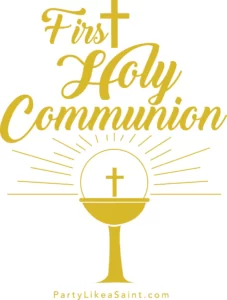
Thank you to all of our families who completed the recent swimming survey. We strongly encourage families to engage in swimming lessons for their children. Learning to swim is a skill that all Australians should be equipped with. We will use the data collected to inform future initiatives at our school.
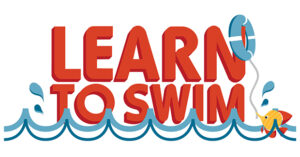
In recent weeks we have seen some of our families get into their cars at the end of the school day and take off without the children being properly retrained into their seats or wearing seat belts. This is alarming and VERY dangerous. Please ensure you take your time to check that your children are secured into their seats, fully seat belted before the car begins to move off.
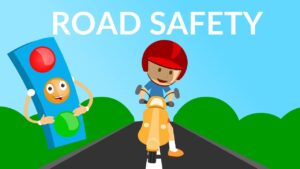
Children require adult supervision and assistance in the traffic environment. It is important to:
-
Talk together about signs and traffic lights. Identify and discuss places where it is safe to cross the road.
-
Teach your child how to cross roads using the ‘stop, look, listen and think’ process – stop at the kerb, look and listen for traffic and then decide whether it is safe to cross. Take the trip to school together along the safest footpaths and use safe crossing places, such as pedestrian crossings and on straight sections of road.
-
Supervise your child on the way to and from school.
-
Always be a good role model for your child by wearing your own seatbelt, obeying road rules, driving courteously and crossing roads safely.
-
Ask at your child’s school what road safety programs are being taught.
It has been noted that some construction workers are not driving safely around our school. If you see trucks or tradespeople driving unsafely, PLEASE report them to the company they work for. It is important we all take responsibility for the safety of our community.
Asthma & Allergies
If your child/children has asthma or any allergies, please notify the office and provide an updated action plan from your doctor as soon as possible.
Health Care Card Holders
If you hold a current Health Care Card please provide the office with a copy.
Nationally Consistent Collection of Data (NCCD) On School Students with Disability
What is the Nationally Consistent Collection of Data?
Schools must now complete the Nationally Consistent Collection of Data on School Students with Disability (NCCD) every year. It counts the number of students who receive additional adjustments or “help” at school because of a disability. The NCCD helps governments plan for the needs of students with disability.
Who is counted in the data collection?
To count a student in the NCCD, schools must think through some key questions:
- Is the student getting help at school so that they can take part in education on the same basis as other students?
- Is the help given because of a disability? The word ‘disability’ comes from the Disability Discrimination Act 1992 (DDA) and it can include many students.
- Has the school talked to you or your child about the help that they provide? 4. Has the school kept records about the help they provide, the student needs and the reasons that the student needs this help? The school will need to keep copies of tests, student work, assessments, records of meetings, medical reports or other paperwork and information about how the student’s learning is moving along over time.
Once the school decides that the student should be counted in the NCCD, they then choose a disability group and one of four levels of help that has been given to the student.
What does the word ‘disability’ mean in the NCCD?
In the NCCD the word ‘disability’ comes from the Disability Discrimination Act 1992 (DDA). There are four types of disability that the school can choose from: sensory, cognitive, social-emotional and physical.
Many students that need help at school can be counted in the NCCD. For example, students with learning problems, e.g. specific learning disability or reading difficulty (sometimes called dyslexia), health problems (e.g. epilepsy or diabetes), physical disability (e.g. cerebral palsy), vision/hearing loss and social-emotional problems (e.g. selective mutism, Autism Spectrum Disorder, anxiety).
Letters from doctors or specialists can be very helpful for schools as they plan how to support students with their learning. Schools do not need to have these letters before they can count a
student in NCCD. Teachers can use all that they know about the student’s learning and the records that they have collected over time to decide if a student can be counted in the NCCD.
What sort of help does the school give students?
Students need different types of help at school. Some students need a little help sometimes while other students need a lot of help nearly all the time. The type of help given depends on the needs of the student. The help can include changes to the school buildings or grounds (e.g. ramps or things like special desks or chairs), extra teacher help in classes, special learning programs, changes to the work they give the student or extra adult help.
How will the NCCD be different this year?
All schools have been counting students in the NCCD since 2015. The government will use the NCCD data as part of the funding to schools.
What will the school need to know about my child for the NCCD? Schools work together with families to understand the needs of each child. It is helpful if families give their child’s teacher a copy of any letters or reports they have. The letters or reports will help the school understand the child and the help that they might need. Letters from doctors, psychologists, speech pathologists, doctor, and occupational therapists etc. can be very helpful for schools. These reports along with information that the teacher has (i.e. school based tests, your child’s work and learning plans) helps the school to understand and meet your child’s needs.
What happens to the NCCD data? Who will have the NCCD information? Each school principal must check the NCCD data in August of each year. The school will give the information to the Catholic Education Office. The school will work with the Catholic Education Office to make sure that the NCCD data is OK before they give the data to the government. The government will not be given the names of any students or any letters or records. Please ask your school for their privacy policy if you need to know more.
Does the school need me to agree with them about counting my child in the NCCD? Amendments were made to the Australian Education Act 2013 and Australian Education Regulation 2013). Schools do not need you to agree to let them count a child in the NCCD. You cannot ask the school not to count your child.
Where can I find out more?
Please contact your child’s school if you have further questions about the NCCD and/or refer to the national NCCD Portal.
School Captains’ report
Throughout this term, all the 3-6 have been learning about Aboriginals and their connection to land. Before the excursion, we were assigned to lead groups and guide them through their activities at Woodlands Park. In separate groups, we taught the Prep – 2s what biodiversity is and how the Aboriginal people used the land for survival. Overall, the excursion was great and each activity was enjoyable and fun. Our favourite was the walk around the park to spot different animals and plants.
Charlene and Grace, Grade 6
Last day of Term 2
Please note the last day of Term 2 will be Friday 23rd June. Students will finish at 1pm.
Students can wear casual clothes on the last day of school for a gold coin donation.